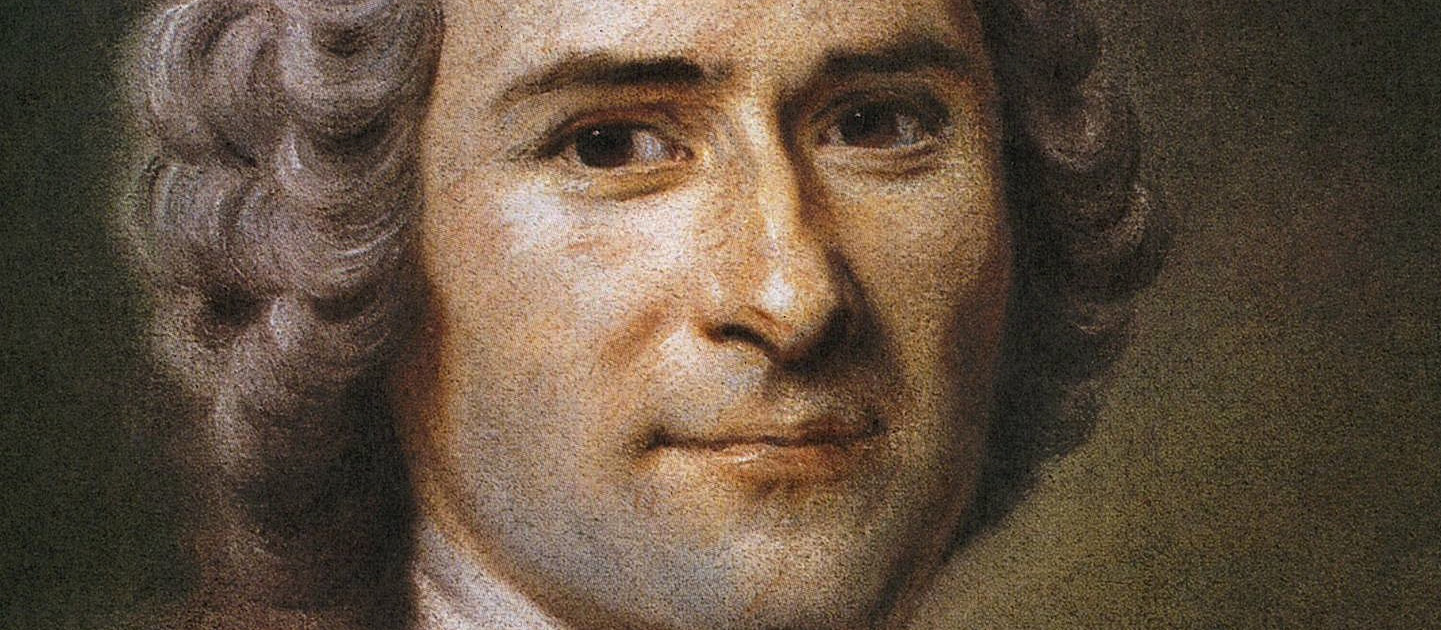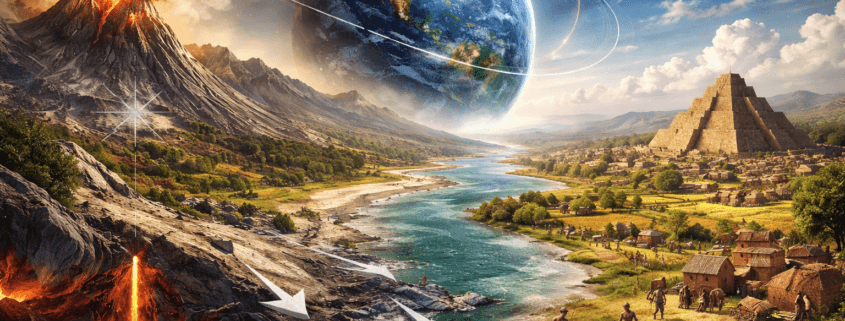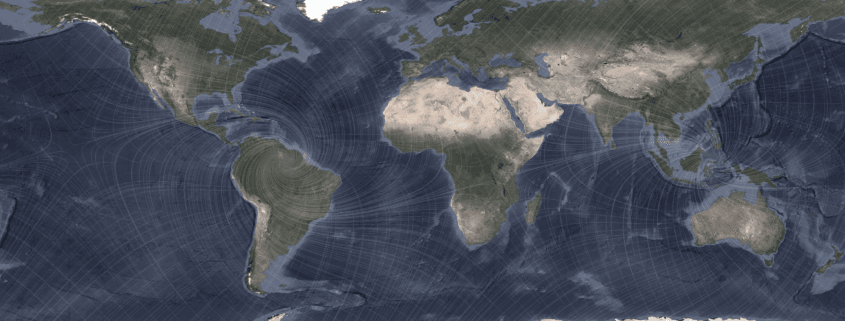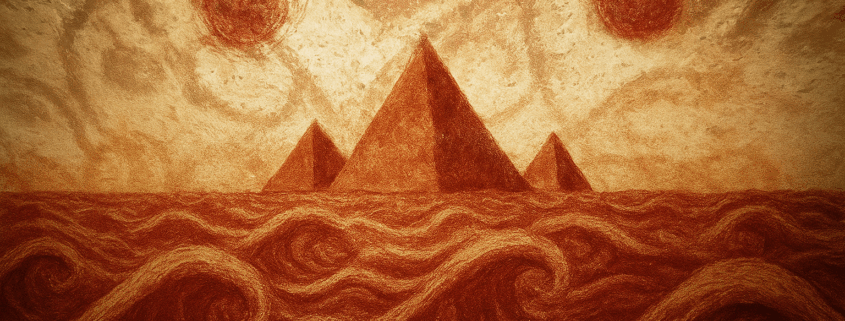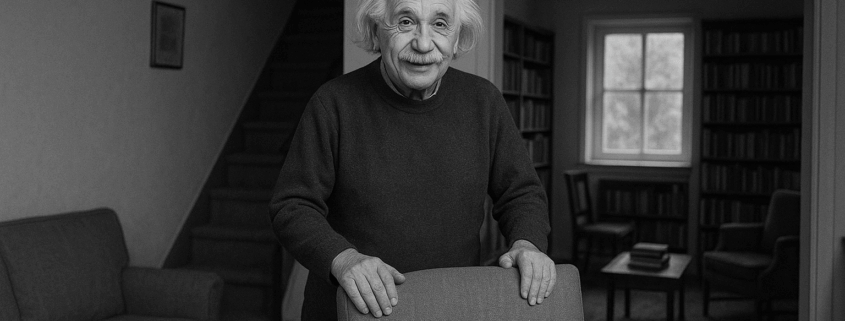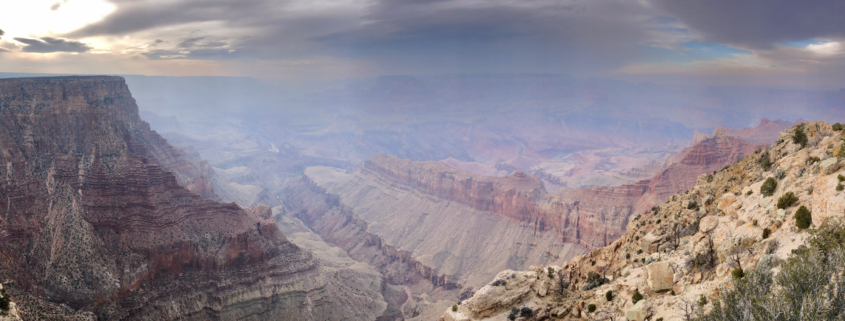Rousseau stood apart from his fellow thinkers of the Enlightenment. Individualism, he suggests here, produces a competitive civilization within which people seek only to surpass one another and to profit at the expense of others. The Discourse, from which this excerpt is taken, was written in 1755 and dedicated to the Republic of Geneva.
The cultivation of the earth necessarily brought about its distribution; and property, once recognised, gave rise to the first rules of justice; for, to secure each man his own, it had to be possible for each to have something. Besides, as men began to look forward to the future, and all had something to lose, every one had reason to apprehend that reprisals would follow any injury he might do to another. This origin is so much the more natural, as it is impossible to conceive how property can come from anything but manual labour: for what else can a man add to things which he does not originally create, so as to make them his own property? It is the husbandman’s labour alone that, giving him a title to the produce of the ground he has tilled, gives him a claim also to the land itself, at least till harvest, and so, from year to year, a constant possession which is easily transformed into property. When the ancients, says Grotius, gave to Ceres the title of Legislatrix, and to a festival celebrated in her honour the name of Thesmophoria, they meant by that that the distribution of lands had produced a new kind of right: that is to say, the right of property, which is different from the right deducible from the law of nature.
In this state of affairs, equality might have been sustained, had the talents of individuals been equal, and had, for example, the use of iron and the consumption of commodities always exactly balanced each other; but, as there was nothing to preserve this balance, it was soon disturbed; the strongest did most work; the most skilful turned his labour to best account; the most ingenious devised methods of diminishing his labour: the husbandman wanted more iron, or the smith more corn, and, while both laboured equally, the one gained a great deal by his work, while the other could hardly support himself. Thus natural inequality unfolds itself insensibly with that of combination, and the difference between men, developed by their different circumstances, becomes more sensible and permanent in its effects, and begins to have an influence, in the same proportion, over the lot of individuals.
Matters once at this pitch, it is easy to imagine the rest. I shall not detain the reader with a description of the successive invention of other arts, the development of language, the trial and utilisation of talents, the inequality of fortunes, the use and abuse of riches, and all the details connected with them which the reader can easily supply for himself. I shall confine myself to a glance at mankind in this new situation.
Behold then all human faculties developed, memory and imagination in full play, egoism interested, reason active, and the mind almost at the highest point of its perfection. Behold all the natural qualities in action, the rank and condition of every man assigned him; not merely his share of property and his power to serve or injure others, but also his wit, beauty, strength or skill, merit or talents: and these being the only qualities capable of commanding respect, it soon became necessary to possess or to affect them.
It now became the interest of men to appear what they really were not. To be and to seem became two totally different things; and from this distinction sprang insolent pomp and cheating trickery, with all the numerous vices that go in their train. On the other hand, free and independent as men were before, they were now, in consequence of a multiplicity of new wants, brought into subjection, as it were, to all nature, and particularly to one another; and each became in some degree a slave even in becoming the master of other men: if rich, they stood in need of the services of others; if poor, of their assistance; and even a middle condition did not enable them to do without one another. Man must now, therefore, have been perpetually employed in getting others to interest themselves in his lot, and in making them, apparently at least, if not really, find their advantage in promoting his own. Thus he must have been sly and artful in his behaviour to some, and imperious and cruel to others; being under a kind of necessity to ill-use all the persons of whom he stood in need, when he could not frighten them into compliance, and did not judge it his interest to be useful to them. Insatiable ambition, the thirst of raising their respective fortunes, not so much from real want as from the desire to surpass others, inspired all men with a vile propensity to injure one another, and with a secret jealousy, which is the more dangerous, as it puts on the mask of benevolence, to carry its point with greater security. In a word, there arose rivalry and competition on the one hand, and conflicting interests on the other, together with a secret desire on both of profiting at the expense of others. All these evils were the first effects of property, and the inseparable attendants of growing inequality.
Before the invention of signs to represent riches, wealth could hardly consist in anything but lands and cattle, the only real possessions men can have. But, when inheritances so increased in number and extent as to occupy the whole of the land, and to border on one another, one man could aggrandise himself only at the expense of another; at the same time the supernumeraries, who had been too weak or too indolent to make such acquisitions, and had grown poor without sustaining any loss, because, while they saw everything change around them, they remained still the same, were obliged to receive their subsistence, or steal it, from the rich; and this soon bred, according to their different characters, dominion and slavery, or violence and rapine. The wealthy, on their part, had no sooner begun to taste the pleasure of command, than they disdained all others, and, using their old slaves to acquire new, thought of nothing but subduing and enslaving their neighbours; like ravenous wolves, which, having once tasted human flesh, despise every other food and thenceforth seek only men to devour.
Thus, as the most powerful or the most miserable considered their might or misery as a kind of right to the possessions of others, equivalent, in their opinion, to that of property, the destruction of equality was attended by the most terrible disorders. Usurpations by the rich, robbery by the poor, and the unbridled passions of both, suppressed the cries of natural compassion and the still feeble voice of justice, and filled men with avarice, ambition and vice. Between the title of the strongest and that of the first occupier, there arose perpetual conflicts, which never ended but in battles and bloodshed. The new-born state of society thus gave rise to a horrible state of war; men thus harassed and depraved were no longer capable of retracing their steps or renouncing the fatal acquisitions they had made, but, labouring by the abuse of the faculties which do them honour, merely to their own confusion, brought themselves to the brink of ruin.
Attonitus novitate mali, divesque miserque,
Effugere optat opes; et quæ modo voverat odit.Both rich and poor, shocked at their new-found ills,
Would fly from wealth, and lose what they had sought.– Ovid, Metamorphoses, xi. 127.
It is impossible that men should not at length have reflected on so wretched a situation, and on the calamities that overwhelmed them. The rich, in particular, must have felt how much they suffered by a constant state of war, of which they bore all the expense; and in which, though all risked their lives, they alone risked their property. Besides, however speciously they might disguise their usurpations, they knew that they were founded on precarious and false titles; so that, if others took from them by force what they themselves had gained by force, they would have no reason to complain. Even those who had been enriched by their own industry, could hardly base their proprietorship on better claims. It was in vain to repeat, “I built this well; I gained this spot by my industry.” Who gave you your standing, it might be answered, and what right have you to demand payment of us for doing what we never asked you to do? Do you not know that numbers of your fellow-creatures are starving, for want of what you have too much of? You ought to have had the express and universal consent of mankind, before appropriating more of the common subsistence than you needed for your own maintenance. Destitute of valid reasons to justify and sufficient strength to defend himself, able to crush individuals with ease, but easily crushed himself by a troop of bandits, one against all, and incapable, on account of mutual jealousy, of joining with his equals against numerous enemies united by the common hope of plunder, the rich man, thus urged by necessity, conceived at length the profoundest plan that ever entered the mind of man: this was to employ in his favour the forces of those who attacked him, to make allies of his adversaries, to inspire them with different maxims, and to give them other institutions as favourable to himself as the law of nature was unfavourable.
With this view, after having represented to his neighbours the horror of a situation which armed every man against the rest, and made their possessions as burdensome to them as their wants, and in which no safety could be expected either in riches or in poverty, he readily devised plausible arguments to make them close with his design. “Let us join,” said he, “to guard the weak from oppression, to restrain the ambitious, and secure to every man the possession of what belongs to him: let us institute rules of justice and peace, to which all without exception may be obliged to conform; rules that may in some measure make amends for the caprices of fortune, by subjecting equally the powerful and the weak to the observance of reciprocal obligations. Let us, in a word, instead of turning our forces against ourselves, collect them in a supreme power which may govern us by wise laws, protect and defend all the members of the association, repulse their common enemies, and maintain eternal harmony among us.”
Far fewer words to this purpose would have been enough to impose on men so barbarous and easily seduced; especially as they had too many disputes among themselves to do without arbitrators, and too much ambition and avarice to go long without masters. All ran headlong to their chains, in hopes of securing their liberty; for they had just wit enough to perceive the advantages of political institutions, without experience enough to enable them to foresee the dangers. The most capable of foreseeing the dangers were the very persons who expected to benefit by them; and even the most prudent judged it not inexpedient to sacrifice one part of their freedom to ensure the rest; as a wounded man has his arm cut off to save the rest of his body.
Such was, or may well have been, the origin of society and law, which bound new fetters on the poor, and gave new powers to the rich; which irretrievably destroyed natural liberty, eternally fixed the law of property and inequality, converted clever usurpation into unalterable right, and, for the advantage of a few ambitious individuals, subjected all mankind to perpetual labour, slavery and wretchedness. It is easy to see how the establishment of one community made that of all the rest necessary, and how, in order to make head against united forces, the rest of mankind had to unite in turn. Societies soon multiplied and spread over the face of the earth, till hardly a corner of the world was left in which a man could escape the yoke, and withdraw his head from beneath the sword which he saw perpetually hanging over him by a thread. Civil right having thus become the common rule among the members of each community, the law of nature maintained its place only between different communities, where, under the name of the right of nations, it was qualified by certain tacit conventions, in order to make commerce practicable, and serve as a substitute for natural compassion, which lost, when applied to societies, almost all the influence it had over individuals, and survived no longer except in some great cosmopolitan spirits, who, breaking down the imaginary barriers that separate different peoples, follow the example of our Sovereign Creator, and include the whole human race in their benevolence.
But bodies politic, remaining thus in a state of nature among themselves, presently experienced the inconveniences which had obliged individuals to forsake it; for this state became still more fatal to these great bodies than it had been to the individuals of whom they were composed. Hence arose national wars, battles, murders, and reprisals, which shock nature and outrage reason; together with all those horrible prejudices which class among the virtues the honour of shedding human blood. The most distinguished men hence learned to consider cutting each other’s throats a duty; at length men massacred their fellow-creatures by thousands without so much as knowing why, and committed more murders in a single day’s fighting, and more violent outrages in the sack of a single town, than were committed in the state of nature during whole ages over the whole earth. Such were the first effects which we can see to have followed the division of mankind into different communities. But let us return to their institutions.
I know that some writers have given other explanations of the origin of political societies, such as the conquest of the powerful, or the association of the weak. It is, indeed, indifferent to my argument which of these causes we choose. That which I have just laid down, however, appears to me the most natural for the following reasons. First: because, in the first case, the right of conquest, being no right in itself, could not serve as a foundation on which to build any other; the victor and the vanquished people still remained with respect to each other in the state of war, unless the vanquished, restored to the full possession of their liberty, voluntarily made choice of the victor for their chief. For till then, whatever capitulation may have been made being founded on violence, and therefore ipso facto void, there could not have been on this hypothesis either a real society or body politic, or any law other than that of the strongest. Secondly: because the words strong and weak are, in the second case, ambiguous; for during the interval between the establishment of a right of property, or prior occupancy, and that of political government, the meaning of these words is better expressed by the terms rich and poor: because, in fact, before the institution of laws, men had no other way of reducing their equals to submission, than by attacking their goods, or making some of their own over to them. Thirdly: because, as the poor had nothing but their freedom to lose, it would have been in the highest degree absurd for them to resign voluntarily the only good they still enjoyed, without getting anything in exchange: whereas the rich having feelings, if I may so express myself, in every part of their possessions, it was much easier to harm them, and therefore more necessary for them to take precautions against it; and, in short, because it is more reasonable to suppose a thing to have been invented by those to whom it would be of service, than by those whom it must have harmed.


